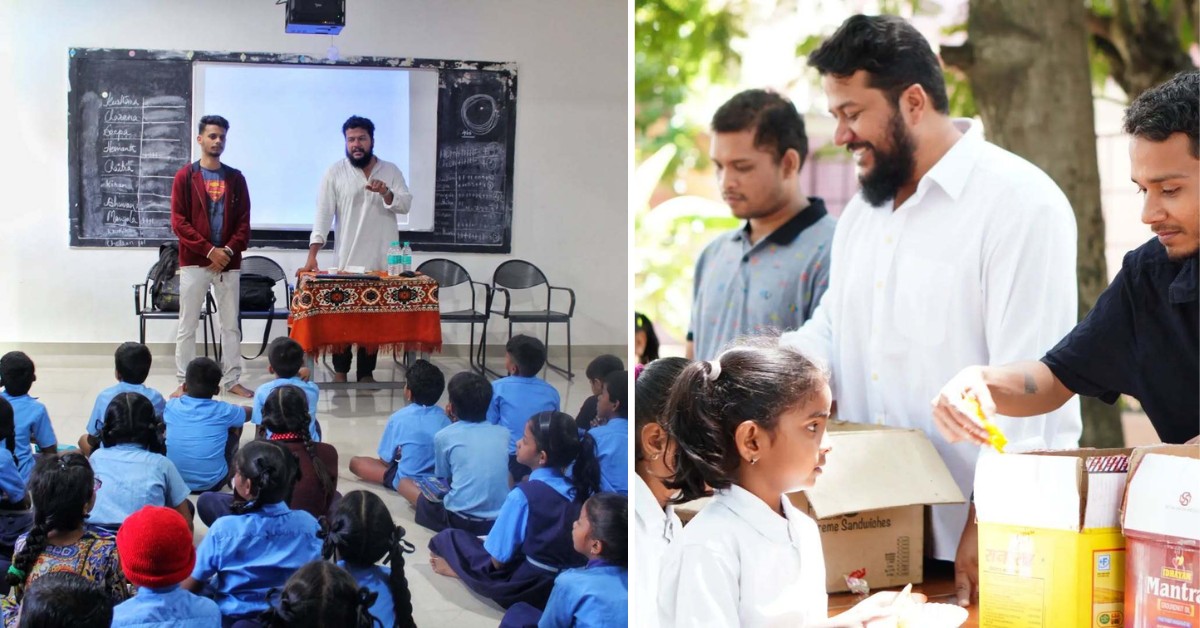Why Is Everyone Online Calling This Man ‘Bengaluru’s Batman’?
For over a decade, Dushyant Dubey — better known by his online moniker St Broseph—has quietly become a lifeline for thousands across India. Operating largely behind the scenes, Dushyant’s journey began with a single call to prevent a suicide.
Since then, he has built a far-reaching and fiercely trusted support system to help people escape abuse, digital harassment, stalking, and more.
Today, his Bengaluru-based initiative has aided over 5,000 individuals, offering everything from legal help and therapy to court escorts and safe housing, without charging a rupee.
A social worker with a meme page
Dushyant’s online identity might come off as quirky at first. His Instagram page, @st.broseph — blends memes, pop-culture references, and wholesome humour with hard-hitting resources on cybercrime and abuse.
But behind the light-hearted tone lies a razor-sharp mission: to make information on safety, consent, and cyber laws accessible and non-intimidating.
“I realised the biggest barrier was that people didn’t know what to do, or who to turn to. So I started creating simple explainers — how to file an FIR, how to block someone legally, what screenshots to save,” he shares.
It worked. Victims of digital abuse, revenge porn, online stalking, and domestic violence started reaching out. What began as a trickle soon turned into a flood. By 2020, Dushyant had formally set up the Citizens for Change Foundation, a one-of-a-kind support collective providing trauma-informed, queer-affirming, and caste-sensitive help to those in crisis.
On the frontline of India’s cybercrime epidemic
India’s cybercrime numbers are rising exponentially, but victims still face an uphill battle when it comes to reporting cases. Police apathy, victim-blaming, and legal jargon create barriers. That’s where Dushyant steps in.
Whether it’s accompanying survivors to the police station, helping them draft legal complaints, or simply being a patient listener, he and his team step in as trusted intermediaries. And it’s not just limited to Bengaluru — he’s helped people across Mumbai, Delhi, Hyderabad, and even rural areas with limited digital literacy.
His work spans sensitive areas — child sexual abuse, financial scams, stalking, caste-based harassment, gendered violence and sometimes, the threats come directly to him. “There have been death threats, I’ve been physically assaulted by police officers,” he recalls. But he refuses to back down. “If not me, then who?”
More than just crisis response
What sets Broseph’s work apart is the long-term nature of support. He doesn’t stop at rescuing someone from an abusive situation. If someone needs therapy, he arranges it. If someone has a court hearing but no one to accompany them, he sends a volunteer. If someone has nowhere to go, their network helps them find safe housing.
 From legal aid and therapy to court escorts and safe housing, Broseph’s foundation has helped over 5,000 people escape abuse, injustice, and fear.
From legal aid and therapy to court escorts and safe housing, Broseph’s foundation has helped over 5,000 people escape abuse, injustice, and fear.
The team also conducts training workshops for schools, corporates, and community groups on topics like digital safety, consent, and bystander intervention. His approach is rooted in empathy and intersectionality — ensuring Dalit, queer, disabled, and neurodivergent individuals feel heard and helped.
A movement built on trust and solidarity
St Broseph’s popularity on social media has nothing to do with viral trends. It’s the kind of quiet credibility built through years of showing up. Many of the people he’s helped have never even met him. They just know—if something goes wrong, Broseph will pick up the phone.
“I’m not a hero. I’m just someone who’s decided not to look away,” he says.
In a country where systemic support is hard to come by, and survivors are often gaslit or silenced, Broseph’s initiative stands as proof that change is possible — one rescued life, one answered call at a time.
News